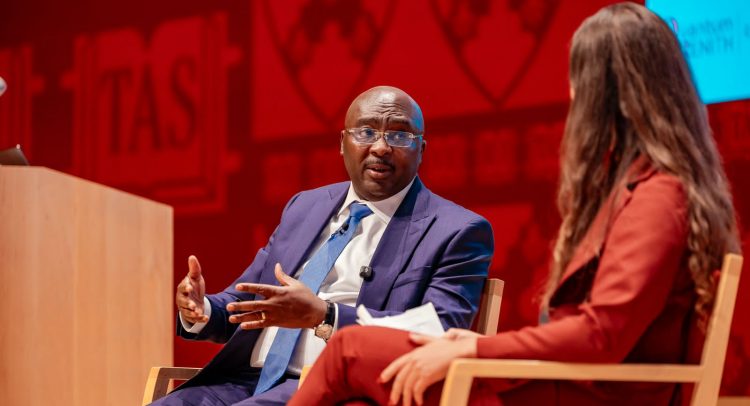Dr. Mahamudu Bawumia, former Vice President of Ghana, has highlighted that Africa’s transformation is highly dependent on the development of its digital economy.
Speaking at Harvard University, he emphasised that digitalisation is no longer a luxury but a necessity for survival and prosperity in the 21st century.
“We are in the midst of a global digital revolution,” he stated. “Artificial intelligence, big data, cloud computing, and the Internet of Things are not just buzzwords; they are reshaping our world.”
According to him, Africa must act with boldness and foresight to avoid missing out on the 4th Industrial Revolution, as it did with previous ones.
Dr. Bawumia detailed Ghana’s strides in digital transformation, citing the significant progress made over the past eight years.
He explained that digitalisation was key to solving long-standing systemic issues, particularly in areas such as financial inclusion, healthcare, agriculture, and public service delivery.
“Our focus is on digital technology that can solve our problems,” he asserted.
“We are not looking to have driverless cars or humanoid robots at this stage. We want technology that can improve access to credit, enhance public service efficiency, and boost economic opportunities.”
He noted that initiatives such as the GhanaCard, the digital property address system, and mobile money interoperability had created a more formalised, transparent, and financially inclusive economy.
One of the standout achievements Dr. Bawumia highlighted was Ghana’s success in financial inclusion, facilitated by mobile money interoperability.
“When we assumed office in 2017, 70% of Ghanaians had no bank accounts,” he revealed.
“However, with mobile money interoperability, we have extended financial services to over 90% of adults, making Ghana the only country in Africa with 100% access to financial inclusion.”
This has not only facilitated seamless transactions but has also fostered entrepreneurship and e-commerce, enabling businesses to thrive without the need for physical infrastructure.
Beyond financial services, he underscored the impact of digitalisation on governance, agriculture, and healthcare.
The introduction of the Citizens App and the integration of government databases have improved efficiency and accessibility in public services. In the agricultural sector, the digitisation of farms and farmer databases has enhanced productivity and ensured better traceability of produce.
“Ghana is the only cocoa-producing country in the world with a fully digitised cocoa management system,” he said.
He also noted that Ghana now has the largest medical drone delivery service in the world, helping to address healthcare challenges in remote areas.
Concluding his address, Dr Bawumia stressed that Africa’s economic future depends on its ability to harness digital technology effectively.
“The digital economy holds the key to unlocking Africa’s vast potential and creating jobs for the youth,” he said. He called for increased investment, leadership, and collaboration across governments, businesses, and educational institutions to build a strong digital ecosystem.
“By working together, we can build a future where every African has the opportunity to thrive and contribute to a brighter tomorrow.”
A Daily Guide Report


